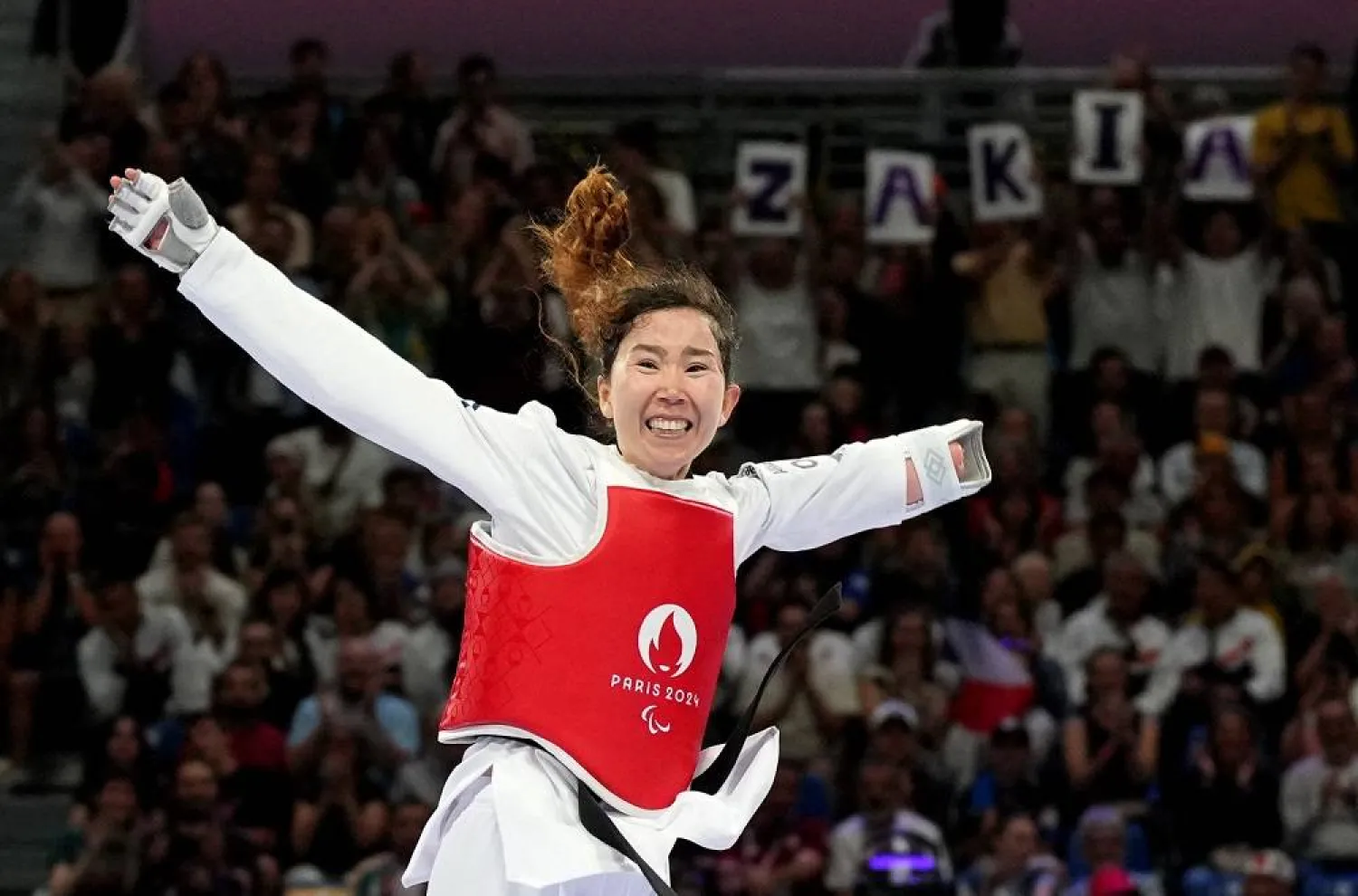Zakia Khudadadi made history on Thursday at the Paris Paralympics by becoming the first athlete from the Refugee Paralympic Team to win a medal.
Khudadadi won bronze in the women's 47kg category after defeating Türkiye's Ekinci Nurcihan. When the final buzzer sounded at the Grand Palais in central Paris, Khudadadi erupted in joy, throwing her helmet and mouthpiece into the air.
“It was a surreal moment, my heart started racing when I realized I had won the bronze,” Khudadadi said, her voice shaking with emotion. “I went through so much to get here. This medal is for all the women of Afghanistan and all the refugees of the world. I hope that one day there will be peace in my country.”
Khudadadi, who was born without one forearm, began practicing taekwondo in secret at age 11 in a hidden gym in her hometown of Herat, in western Afghanistan.
Originally blocked from competing following the rise of the Taliban in 2021, she was later evacuated from Afghanistan and was allowed to compete at the Tokyo Olympics for her country following a plea from the international community.
After the competition, she settled in Paris and was later offered the opportunity to compete with the refugee team at the Paris 2024 Paralympics.
“This medal means everything to me, I will never forget that day,” Khudadadi said. “I won because of the great support I got from the crowd.”
The atmosphere in the Grand Palais was electric as the French crowd cheered her on as if she were one of their own. Since fleeing Afghanistan, Khudadadi has been training at INSEP, France’s national institute of sport, in Paris with her French coach Haby Niare, a former taekwondo world champion.
“Zakia has been magical. I don't know how else to put it,” Niare said, beaming with pride. “The training process has been challenging. She faced a lot of injuries and she had to learn a lot in a couple of years but she never lost sight of her goal."
Khudadadi received her medal from UN High Commissioner for Refugees Filippo Grandi and Andrew Parsons, the president of the International Paralympic Committee.
“For the Refugee Paralympic Team, it's super special, it's super important,” Parsons said. “Zakia just showed to the world how good she is. It's an incredible journey, it's something that we should all learn about.”









